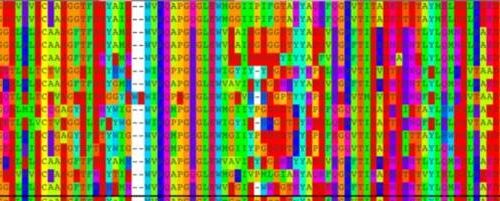Physical Sciences/Engineering
The antibody sequencing system driving targeted drug design

The global demand for targeted, effective treatments for a wide range of diseases has led to significant growth in the number of antibody drugs. A third of all new medicines under development involve an antibody therapy. They account for more than 100 licensed treatments for cancer, autoimmune disease and blood clotting, and over 200 were in development during the COVID-19 pandemic to tackle the virus.
Antibodies lock on to specific antigens that the immune system targets as ‘foreign’, helping the body to recognise and attack them. The function of these ‘Y’ shaped proteins depends on a complex 3-D structure determined by their amino acid sequence. Unlike small molecule research where compounds are still made individually by hand, various molecular biology techniques and technologies are used to generate and assess enormous numbers of antibodies. The variation in strategies and large numbers of antibody sequences requiring analysis create unique challenges for antibody informatics.
An antibody discovery platform
Andrew Martin is Professor of Bioinformatics and Computational Biology in UCL’s Department of Structural & Molecular Biology and a world expert in developing systems to interrogate and understand antibodies and the wider immune system. His work has led to the development of an innovative bioinformatics platform, abYsis, that is enabling investigators in academia and industry to analyse the features of novel antibodies and to store sequence information:
“Researchers have thousands of antibodies to choose from. The abYsis database was built to help scientists without specialist bioinformatics expertise to analyse and understand antibody sequence data and use that to design more stable, precise and effective targeted antibody therapies.”
Since 2009, abYsis has been available for researchers to input large numbers of sequences from a range of organisms in a variety of antibody formats. The system numbers the sequences and defines key structural regions. With numbering and region definitions applied uniformly across an experimental dataset, users can relate information such as binding stability data to observed sequence variations. These insights can be used to propose and test changes to generate an improved antibody.
Responding to industry needs
Freely accessible online, the value and popularity of the tool quickly became apparent. But being hosted on a public server meant the system was unsuitable for use by industry researchers working with proprietary data. Recognising the commercial potential, in 2010 UCLB funded further software development and engaged specialist bioinformatics consultancy Chemogenomix to support the launch of a locally-installable version of the abYsis system for industry users, under commercial licence.
“The uptake has been fantastic,” says Andrew. “AbYsis is now being used by three of the top ten global pharmaceutical companies, and biotech companies around the world have licensed the software to accelerate their drug design work.”
Ongoing investment has kept abYsis up-to-date and responsive to users’ needs. A substantial award from the BBSRC Follow on Fund in 2013 was used to further improve the system’s functionality and interface, allowing investigators to view sequence alignments on a web page and to sort sequences based on regions of interest. Subsequently, a portion of licensing income has been set aside to fund an ongoing programme of improvements to the system, as UCLB Associate Director for Physical Sciences and Engineering Marina Santilli explains:
“A key approach by UCLB has been to treat abYsis as a living product rather than a static piece of niche academic software with a limited shelf life. By collaborating from the outset with industry experts to reach our target market, the abYsis team have kept commercial users’ needs in clear view. Ring-fencing a portion of licensing income has allowed us to deliver on such needs and continue to grow our user base.”
Sustaining global impact
This re-investment strategy has paid off, with financial returns from commercial licensing increasing significantly as abYsis has grown its appeal for industry customers. Further, the licensing income to UCL ensures continued availability of the free web-accessible version for researchers worldwide.
“It’s been really satisfying to see the journey through, from my original concept of a tool for academic researchers to abYsis becoming a robust and sustainable product which is making a global impact in antibody drug development,” says Andrew. “I hope that the model we’ve created will ensure it continues to be valuable to investigators in both academia and industry for many years to come.”